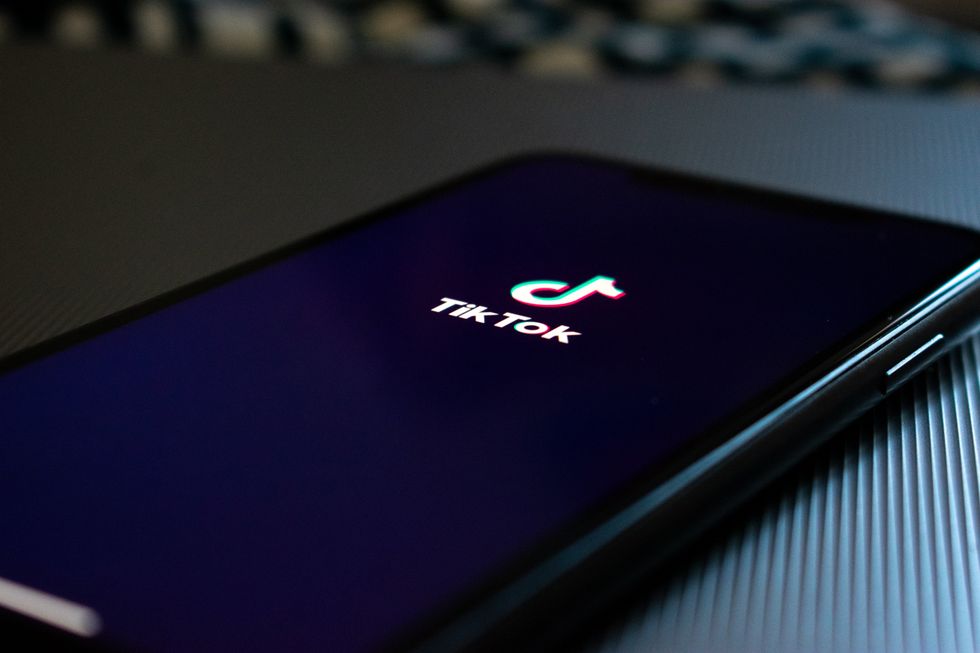LA Tech Updates: Spotify Misses Revenue Mark, Snap Releases Diversity Report, TikTok Jabs Facebook
Francesca Billington is a freelance reporter. Prior to that, she was a general assignment reporter for dot.LA and has also reported for KCRW, the Santa Monica Daily Press and local publications in New Jersey. She graduated from Princeton in 2019 with a degree in anthropology.

Here are the latest updates on news affecting Los Angeles' startup and tech communities. Sign up for our newsletter and follow dot.LA on Twitter for more.
Today:
- Spotify has more listeners, but ad revenue drops
- 'We Must Do More': Snap Releases Dismal Diversity Report
- TikTok CEO Promises More Transparency, Jabs Facebook for 'Copycat Product'
TikTok CEO Promises More Transparency, Jabs Facebook for 'Copycat Product'
 LA Tech Updates: TikTok Says it Will Pay Creators — and Universal Music Group
LA Tech Updates: TikTok Says it Will Pay Creators — and Universal Music GroupTikTok is promising more transparency.
The Culver City-based social media platform will release its algorithms and content moderation policies, CEO Kevin Mayer wrote in an open letter Wednesday. Owned by China's ByteDance, the company has been facing pressure as speculation grows that its content is being shared with Beijing.
"We accept this and embrace the challenge of giving peace of mind through greater transparency and accountability," Mayer wrote. "We believe it is essential to show users, advertisers, creators, and regulators that we are responsible and committed members of the American community that follows US laws."
Earlier this month, the Trump administration said it was "looking at" banning the app over those concerns. Then last week, the House prohibited U.S. federal employees from downloading the app on government-issued devices.
It's also notable that his letter was published the same day Facebook's Mark Zuckerberg as well as the CEOs of Twitter, Google and Apple testified before Congress on antitrust law. In the letter, Mayer takes a swipe at Zuckerberg for this upcoming Reels product.
What you need to know:
- Calling it the Transparency and Accountability Center, TikTok will let experts view the company's data practices and algorithms.
- Investors of parent company ByteDance are now valuing the app at $50 billion — surpassing the projected 2020 revenue by 50 times. Some are pushing for ownership over the platform.
- Mayer took jabs at the other tech giants in the letter:
- "This puts us a step ahead of the industry, and we encourage others to follow suit."
- "At TikTok we welcome competition. We think fair competition makes all of us better. To those who wish to launch competitive products, we say bring it on."
- Then he hit Facebook's forthcoming Reels feature, calling it a "copycat product."
'We Must Do More': Snap Releases Dismal Diversity Report
 Snap's Accelerator Program Expands with 'Yellow Collabs'
Snap's Accelerator Program Expands with 'Yellow Collabs'While much of the tech world was fixated on a blockbuster congressional hearing of four executives from top tech companies, Snap Inc. quietly released its first report on diversity since the company was founded in 2011 and the numbers were dismal.
Evan Spiegel, CEO of Snap, which has faced allegations of a racist and sexist workplace, as recently as last month told employees he wouldn't release the numbers publicly. The company has good reason to try to bury the news.
Blacks only represent 4.1% of Snap's U.S. workforce while Hispanic/Latinx makeup 6.8%, far below their numbers in the general population. At the top, 2.6% of leadership roles are held by Blacks while seven percent are held by Hispanic/Latinx. Women make up 32.9% of Snap's global workforce but only 16.1% of tech teams and just 6.7% of tech teams' leadership.
"To date, our DEI (Diversity, Equity & Inclusion) outcomes simply have not been good enough," the company said in the report. "We must do more." Snap has set a goal of doubling the number of women in tech roles by 2023 and doubling the number of underrepresented minorities at the company by 2025.
While its diversity numbers are low, Snap is not much worse than other tech giants, though most of those companies have released their numbers for years.
Last month, Snap was forced to remove a Juneteenth filter that prompted users to smile in order to break a series of chains, and that was not the first time the company was criticized for an offensive filter.
"We deeply apologize for the offensive Juneteenth Lens," the company said in a tweet.
Snap outlined a number of steps to improve its numbers, including changes to recruiting, setting representation goals for underrepresented groups, and instituting a $70,000 minimum living wage for employees working at its Santa Monica headquarters.
Spotify Has More Listeners, but Ad Revenue Drops
 Spotify Earnings: The Music Streaming War Is Heating Upfarm5.staticflickr.com
Spotify Earnings: The Music Streaming War Is Heating Upfarm5.staticflickr.comSpotify's second quarter earnings, released today, show listening and podcast streaming up even as revenue missed the mark with the pandemic hurting ad sales.
The Swedish music streaming service acknowledged slower business in April and May across emerging regions. Still, Spotify said its strength in North America offsets the setback, noting that it turned a corner in June.
"We believe the improved momentum we saw in the back half of the quarter has continued into Q3 and we expect to hit our full year targets," the company told shareholders.
What you need to know:
- Ad revenue, which makes up less than 10% of total revenue, is down 21% from last year, a nod to dropping sales brought on by the pandemic.
- The average revenue per Spotify Premium user (ARPU) is also down 9% as a fewer percentage of users pay the standard $9.99/month rate. More are opting in for family and student plans. Users in some countries also pay a lower price for subscriptions.
- 13 million new monthly active members brings Spotify's total to an all-time high of 299 million. Plus, 8 million new subscribers brings the total of ad-free premium customers to 138 million.
- Overall listening times have returned to pre-pandemic levels in all regions except Latin America.
- More users are listening on at-home smart speakers and smart TVs.
- In an effort to diversify Spotify content and move away from music, podcast options are expanding — including exclusive deals with big names like Joe Rogan, Kim Kardashian, DC Franchise, the Obamas and TikTok star Addison Rae.
- Since the start of 2019, overall podcast listening has doubled since. One fifth of monthly active members are tuning in.
- TikTok addresses 'tough but fair questions' about opportunities for ... ›
- PledgeLA Releases Report on Diversity in Los Angeles Tech - dot.LA ›
- TikTok's $2 Billion Creator Fund Goes After Instagram - dot.LA ›
- Microsoft Reportedly Looking to Buy TikTok ›
- Microsoft Reportedly Looking to Buy TikTok - dot.LA ›
- Snap Shares Soar on Upbeat Third Quarter Earnings - dot.LA ›
Francesca Billington is a freelance reporter. Prior to that, she was a general assignment reporter for dot.LA and has also reported for KCRW, the Santa Monica Daily Press and local publications in New Jersey. She graduated from Princeton in 2019 with a degree in anthropology.
Ben Bergman is the newsroom's senior finance reporter. Previously he was a senior business reporter and host at KPCC, a senior producer at Gimlet Media, a producer at NPR's Morning Edition, and produced two investigative documentaries for KCET. He has been a frequent on-air contributor to business coverage on NPR and Marketplace and has written for The New York Times and Columbia Journalism Review. Ben was a 2017-2018 Knight-Bagehot Fellow in Economic and Business Journalism at Columbia Business School. In his free time, he enjoys skiing, playing poker, and cheering on The Seattle Seahawks.




 Image Source: Skyryse
Image Source: Skyryse
 Image Source: Northwood Space
Image Source: Northwood Space